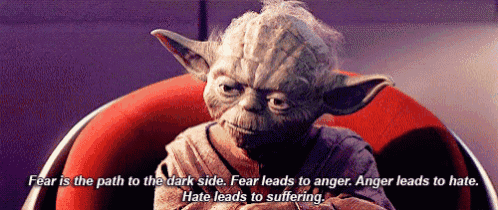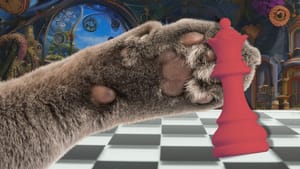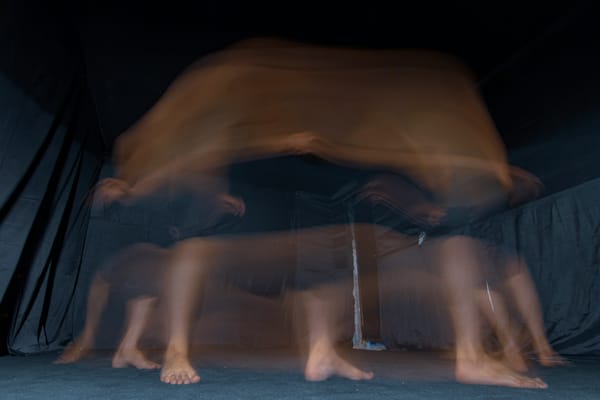Lately, I've been contemplating a phenomenon I see all around me. It feels as though we are living in an age of rage. One need not look far; a brief scroll through the digital public square of social media reveals a torrent of anger directed at politics, culture, and society. A simmering outrage seems to be a dominant emotional currency. I understand the appeal, the immediate, sharp jolt of righteous anger at perceived injustice.
However, I've come to believe this collective rage is not the primary issue but a symptom of a deeper, more personal malady. At its core, it is a visceral reaction to a profound sense of powerlessness.
The Illusion of Power: Rage as a Response to Helplessness
When people feel their agency is meaningless and that they cannot affect significant change in the world, rage often emerges as a powerful, albeit misguided, force. In this context, anger functions as a coping mechanism, a way to feel something potent to counteract the gnawing emptiness of helplessness. Rage provides a cause, a battle to be fought, and a belief system to inhabit.
This relationship between powerlessness and anger can be viewed through a Stoic lens. The ancient Stoics, like Epictetus and Marcus Aurelius, taught that human suffering arises not from events themselves, but from our judgments about them. They made a crucial distinction between what is within our control (our thoughts, judgments, and responses) and what is not (external events, the actions of others).
Rage, from a Stoic perspective, is a ‘passion’, an irrational emotional response that occurs when we desperately try to control what is fundamentally outside our power. It represents a violation of what Stoics called the discipline of desire, where we become pathologically attached to ‘preferred indifferents’, outcomes we prefer but cannot guarantee. When we rage against political developments, cultural shifts, or social changes, we are essentially demanding that the universe conform to our preferences rather than accepting what Marcus Aurelius called the ‘inner citadel’, that sovereign space within us where true agency resides.
The Stoics understood that this inner citadel is both our refuge and our responsibility. It is the one domain where we possess absolute authority, yet it requires constant cultivation. Rage abandons this citadel, seeking power in external battlefields where victory is ultimately impossible.
My early martial arts training was an unconscious exploration of this idea. I was convinced that if I could just fight hard enough, I would finally gain a sense of control. Yet, the more I fought, the more I understood I wasn't addressing the root cause. The feeling of powerlessness remained, masked by fleeting bursts of rage. I was, in essence, fighting shadows. While rage offers a momentary illusion of control, it is a transient spark that ultimately leaves us more aware of the darkness it fails to illuminate.
The Void of Meaning: Why Rage Fills the Vacuum
I believe this widespread sense of powerlessness is intertwined with what modern thinkers like John Vervaeke call the ‘meaning crisis.’ In our secular, hyper-individualised world, the traditional structures that once provided a sense of purpose, religion, stable communities, lifelong careers, have significantly eroded. This erosion leaves a void. When a life lacks a guiding purpose, it becomes vulnerable to being co-opted by the most intense stimuli available. Rage, with its clear-cut narratives of heroes and villains, becomes a powerful ‘stand-in for purpose.’
This echoes the insights of existentialist philosophy. Thinkers like Albert Camus spoke of the ‘absurd’ (I wrote about this HERE), the tension between our innate human desire for meaning and a silent, indifferent universe. For the existentialist, the challenge is not to find pre-ordained meaning, but to create it through our choices and commitments. When we fail to engage in this creative act, we can fall into what Jean-Paul Sartre called ‘bad faith’, fleeing from our freedom and responsibility by adopting a rigid, pre-packaged identity.
Collective rage offers such an identity, one that is passionate and seemingly purposeful, yet requires little genuine self-examination. It provides the adrenaline of certainty in a world running on the empty fumes of ambiguity.
Here lies a crucial distinction that Camus himself made: between destructive rage and what he called ‘revolt.’ Camus advocated for revolt against absurdity, but his revolt was creative, not nihilistic. It was the affirmation of human dignity in the face of meaninglessness, not the destruction of everything that fails to provide meaning. True revolt builds; rage merely tears down. Camus's rebel creates art, love, and solidarity precisely because the universe provides no inherent purpose, not in spite of it, but because of it.
The Poison We Drink: An Eastern Perspective
Buddhist philosophy offers another lens through which to understand rage's self-defeating nature. In Buddhist thought, anger is considered one of the ‘three poisons’ (along with greed and ignorance) that fundamentally distort our perception of reality. The Buddha taught that holding onto anger is like grasping a hot coal with the intent of throwing it at someone else; you are the one who gets burned.
This insight bridges Eastern wisdom with Western philosophy. Both traditions recognise that rage, while feeling empowering, actually diminishes our capacity for clear thinking and effective action. The Buddhist concept of dukkha (suffering) arising from attachment parallels the Stoic understanding of passion as the result of false judgments about what is truly ‘up to us.’ Or in the words of Master Jedi, Yoda: “Fear is the path to the dark side. Fear leads to anger. Anger leads to hate. Hate leads to suffering.”

The Collapse of Genuine Power
Political philosopher Hannah Arendt made a crucial distinction between power and violence that illuminates our current predicament. For Arendt, power is the collective human capacity to act together, to create something new in the world. Violence, by contrast, is the use of instruments to multiply individual force. Violence can destroy power, but it cannot create it.
Rage operates in the register of violence, not power. When we are consumed by anger, we seek to impose our will through force rather than building the collective capacity for meaningful action. This explains why rage feels so politically impotent despite its intensity, it represents not an exercise of power but its absence. True political agency requires the patient work of building relationships, institutions, and shared understandings. Rage shortcuts this process, seeking immediate gratification at the expense of lasting change.
The Ego's Feast, The Soul's Famine
Rage is a powerful force, but its power is deceptive. It is a feast for the ego, giving it an illusion of strength and moral superiority, but it starves the soul of genuine insight and growth. When we are consumed by anger, we are not thinking; we are reacting. We are chasing an emotional high that distracts from the more difficult, deeper work of discovering what truly matters.
This can be understood through Plato's tripartite theory of the soul. Plato envisioned the soul as a chariot, with a charioteer (Reason) trying to guide two horses: a noble horse (Spirit, or Thymos) and an unruly one (Appetite). Anger and indignation belong to the spirited part of the soul. While Spirit can be an ally of Reason, providing the courage and force to fight for what is right, it can also become inflamed and usurp control.
When rage takes the reins, as it did for me in that sparring match where I swung wildly and lost all technique, Reason is overthrown. The result is not victory, but blindness. The spirited part of the soul, which should serve justice and truth, instead becomes their enemy.
Living from a place of rage means living defensively. It is a life of deconstruction, of tearing down what is disliked, which inevitably leaves one standing in the rubble with nothing built in its place.
The Philosophy of Disciplined Practice
My martial arts training became a laboratory for understanding the relationship between techne (skill or craft) and phronesis (practical wisdom), a distinction central to Aristotelian philosophy. When I fought with pure technique but without wisdom, I was like a skilled craftsman using tools without understanding their purpose. My wild swinging represented techne divorced from phronesis, technical ability without the wisdom to know when and how to apply it.
Aristotle taught that phronesis emerges through practice, through the repeated application of principles in concrete situations. The dojo became my philosophical gymnasium, where I learned that true mastery requires not just physical skill but the wisdom to know when force is necessary and when restraint serves better.
This integration of skill and wisdom offers a model for how we might channel our passionate energies constructively. Rather than abandoning our spirited nature, we can educate it, training it to serve reason rather than replace it.
The Way Out: From Inner Work to Outer Purpose
The solution, though challenging, begins with turning inward. It requires letting go of rage to confront the very powerlessness, fear, and uncertainty that it so effectively masks. This is the essence of what Socrates meant by "the unexamined life is not worth living." It is the process of learning to find tranquility within oneself, recognising that while the external world is often beyond our control, our response to it is entirely within our power.
This inner work is not navel-gazing but preparation for meaningful action. As the Stoics taught, we must first achieve ataraxia (tranquility) before we can act with genuine effectiveness in the world. As a side note: the Stoics focused on living a virtuous life according to nature, which they believed naturally led to ataraxia, something completely lost in what philosopher Luis de Miranda critiques by asking, "Is Stoicism now the philosophy of capitalism?" This virtue-centred essence is definitely lost in the hijacking of Stoicism by the 'manosphere.'
Bottom line: Rage makes us reactive; wisdom makes us responsive.
The ultimate antidote to rage is not passivity, but a different kind of action: the pursuit of a meaningful purpose. This is the core of Viktor Frankl's logotherapy, developed from his experiences in the concentration camps. Frankl argued that the primary human drive is not pleasure or power, but the pursuit of what we find meaningful. When we find a ‘why’ to live for, we can bear almost any ‘how.’
Purpose is built by shifting our focus from what we can tear down to what we can build. It comes from asking profound questions: What do I care about? What legacy do I wish to create? For me, the answer became teaching martial arts not just for self-protection, but as a vehicle for self-actualisation.
Lived Philosophy: Daily Exercises for the Soul
Of course, in the spirit of trying to put forward lived philosophy, without practice, it remains a mere intellectual exercise. Here are concrete ways I have come up with that have helped me cultivate the inner work that transforms rage into purpose:
The Stoic Evening Review: Each night, examine your day through the lens of the dichotomy of control. Ask yourself: "What did I encounter today that was not up to me? How did I respond? What was within my control that I neglected?" This practice strengthens your ability to recognise when you're fighting shadows rather than engaging with reality.
Existentialist Choice Identification: Weekly, identify one choice you made that was truly authentic, aligned with your deepest values rather than external expectations or pressures. Also identify one choice made in "bad faith”, where you fled from your freedom into a pre-packaged identity or reaction. This develops your capacity for authentic self-creation.
Platonic Soul Examination: When you feel strong emotions arising, pause and ask: "Which part of my soul is speaking? Is this my reason, my spirit, or my appetite? What would it look like for reason to guide this response?" This practice helps you recognise when passion is serving wisdom versus when it has usurped control.
The Buddhist Pause: Before responding to provocation, take three conscious breaths and ask: "What would happen if I acted from wisdom rather than reaction? What would love do here?" This interrupts the automatic pattern of rage and creates space for response rather than reaction.
The Revolt of Creation
When you are guided by a genuine sense of purpose, you no longer need the borrowed intensity of outrage to feel alive. You are not tossed about by every passing slight, because your attention is fixed on a larger goal. This is where true strength and peace are found, not in the battle against the world, but in the disciplined and creative work of building a meaningful life within it.
This is the revolt that Camus envisioned: not the destruction of what we hate, but the creation of what we love. It is the recognition that in an absurd universe, our capacity to create meaning, beauty, and connection is not a consolation prize but the very point of existence.
The age of rage need not define us. Beneath the fury lies a deeper hunger, for purpose, for agency, for meaning. When we turn toward this hunger with philosophical wisdom and practical discipline, we discover that what we thought was our weakness (our need for meaning in a meaningless world) is actually our greatest strength. It is the very capacity that allows us to transform suffering into wisdom, chaos into order, and rage into the fuel for a life worth living.










Member discussion